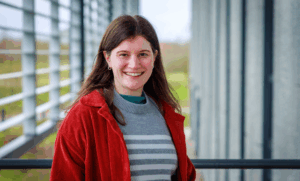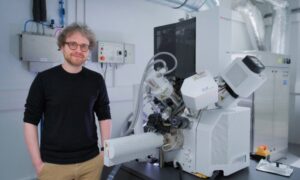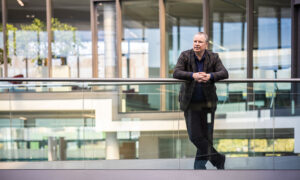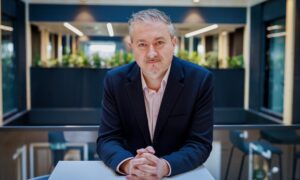
Welcome: Ana Boskovic
The new group leader at EMBL Rome will study how embryos can inherit non-genetic information from their parents that causes stable and heritable effects
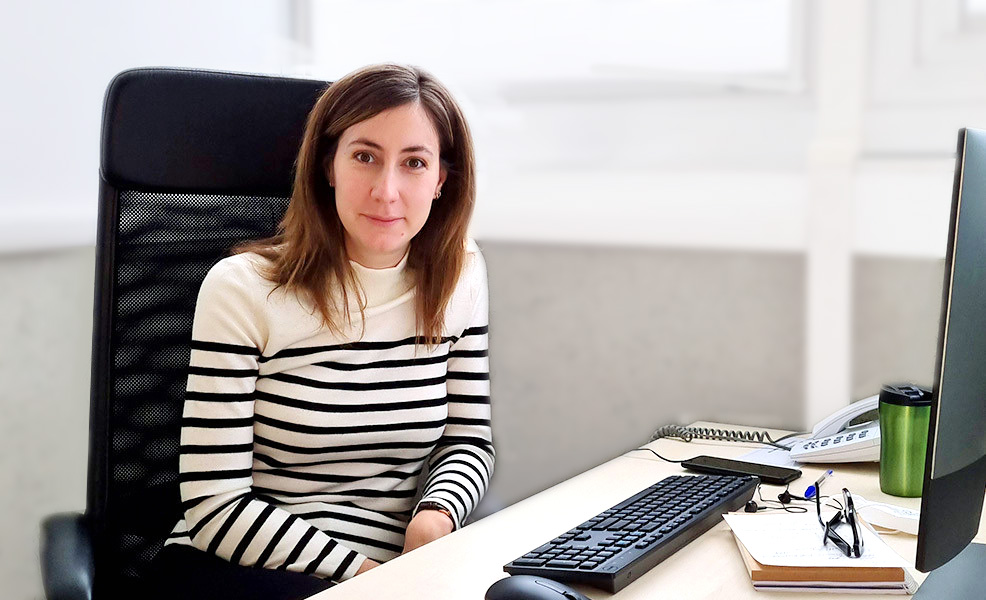
Embryonic development is a complex process. It starts from a single cell (the fertilised egg cell), which proliferates and gives rise to all the tissues of the embryo and those that surround it, such as the placenta in mammals. This process is finely regulated so that specific genes are turned on or off, depending on the cell type that they will give rise to.
Ana Boskovic has just started her lab at EMBL Rome. Her research aims to elucidate how transient information delivered to the embryo by the sperm or egg cell is able to alter gene expression and induce permanent and heritable effects in the offspring. This process is known as transgenerational epigenetic inheritance – epigenetic because it involves changes to the DNA output, without changing the underlying DNA code.
What brought you to EMBL?
I’m originally from Split, Croatia, and I worked in France and the US for my PhD and postdoc. I wanted to come back to Europe, and I knew EMBL of course. As I’ve worked in epigenetics for a very long time, an EMBL unit focusing on epigenetics was the perfect move! I was already familiar with some of the work that is done here, and besides the research I was very attracted by the technical support provided by EMBL Rome’s facilities – such as the Gene Engineering and Embryology Facility and Laboratory Animal Resources, which are closely related to my research.
I’ve found an incredibly welcoming and collaborative community here at EMBL Rome. It feels so natural to go to anybody and ask for help, which is really important. And moving to Rome has been delightful – even though I don’t speak Italian yet, if I need to, I can wave my hands around a lot and get the message across!
What will be the focus of your research?
I’ve always been interested in fundamental biological questions, such as how the embryo manages to activate its genome. It goes from a silent state immediately after fertilisation, where all genes are repressed, to a state of massive gene activity already at the 2-cell stage of development. We now have very powerful tools to perform detailed single-cell genomic experiments, to understand the role of certain proteins in activating genes during development. If we understand the basic principles that govern early embryonic development, we can start to uncover how these get translated into heritable features. This also impacts our understanding of the developmental origins of health and disease.
In my previous work, we observed that male mice on a low-protein diet deliver transient information via their sperm in the form of small RNA molecules, which change gene expression in the liver in their offspring.
What’s the most fascinating aspect of your research?
To me, it is fascinating how much we are shaped by the interactions with others as well as with our surroundings. Therefore, the mammalian embryo is a fantastic model system to study, as it responds to the external environment and allows us to understand the complex interactions between organisms and their environment.
In general, I think being a scientist is very exciting, as no day is ever the same. There’s a very important human component, as you have constant interactions and fruitful exchanges with other scientists. While there are also many failures we experience when doing science, the biggest lesson I have learned is that none of them are really failures if you learn something from them in the end.
What are your interests apart from science?
I love volleyball: I play it and I watch it whenever I can. I used to travel a lot, and I’m currently enjoying Rome and its amazing historical sites. I also love shoes – and Italy is the best place for it! I like writing; lately I’ve started to write for a popular website to make science more accessible to a wider audience. If you’re interested – check out www.sci-dip.com.
How did you find the experience of changing jobs in the middle of the pandemic?
It’s not been easy – this pandemic time hasn’t been easy for anybody. It’s been difficult to be far away from my family and from work at a critical time in my career. But I’ve also reconsidered my situation, and realised that I was lucky to be able to stay at home and still learn and try to grow in other ways, especially since leading a group is different to what I’ve done so far and there is a lot to learn. As our Head of Unit recently said, we should be kind to others but also to ourselves during these times.
